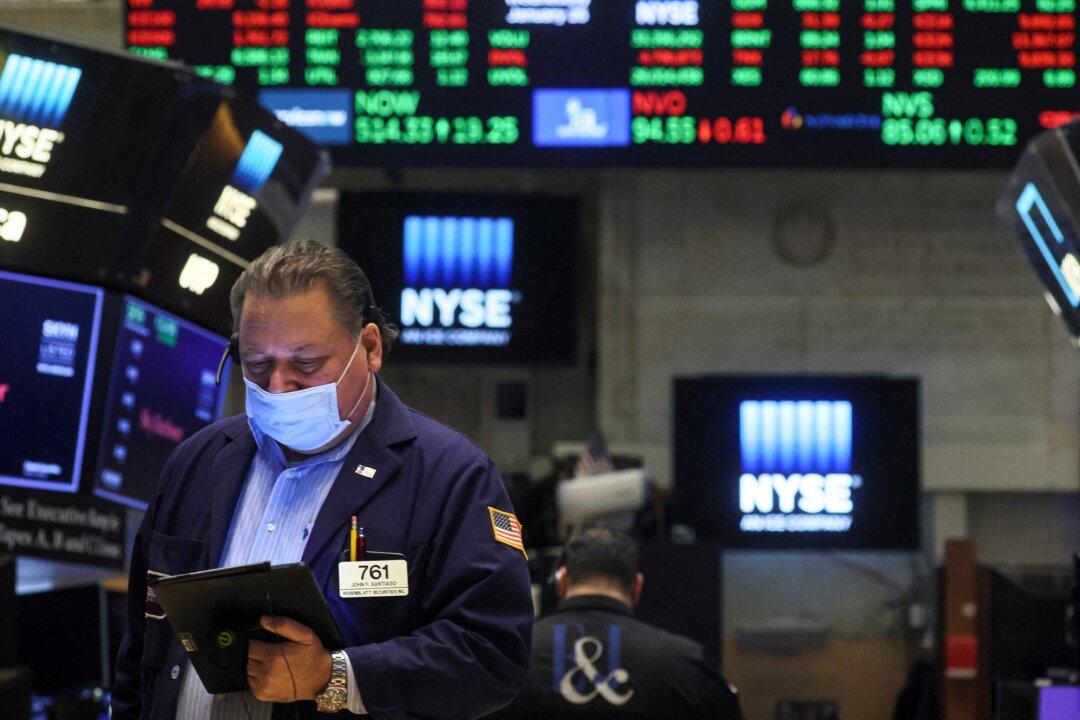All three Wall Street benchmarks advanced on Tuesday and the energy index closed at a multi-year high, although seesaw trading reflected investor uncertainty about how to play the current market.
Recent sessions have been choppy, as the prospect of an aggressive rate-hike campaign by the U.S. Federal Reserve looms large and investors seek to position themselves accordingly—a task not made easy by lingering pandemic influences on the economy and geopolitical tension in Europe.





